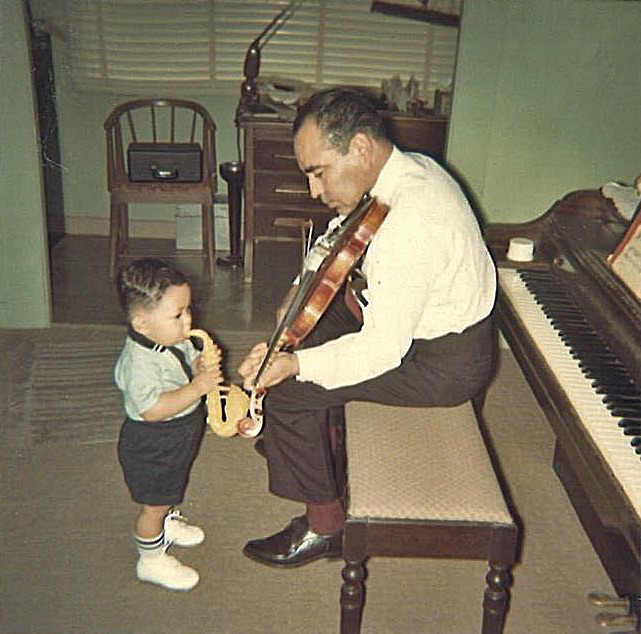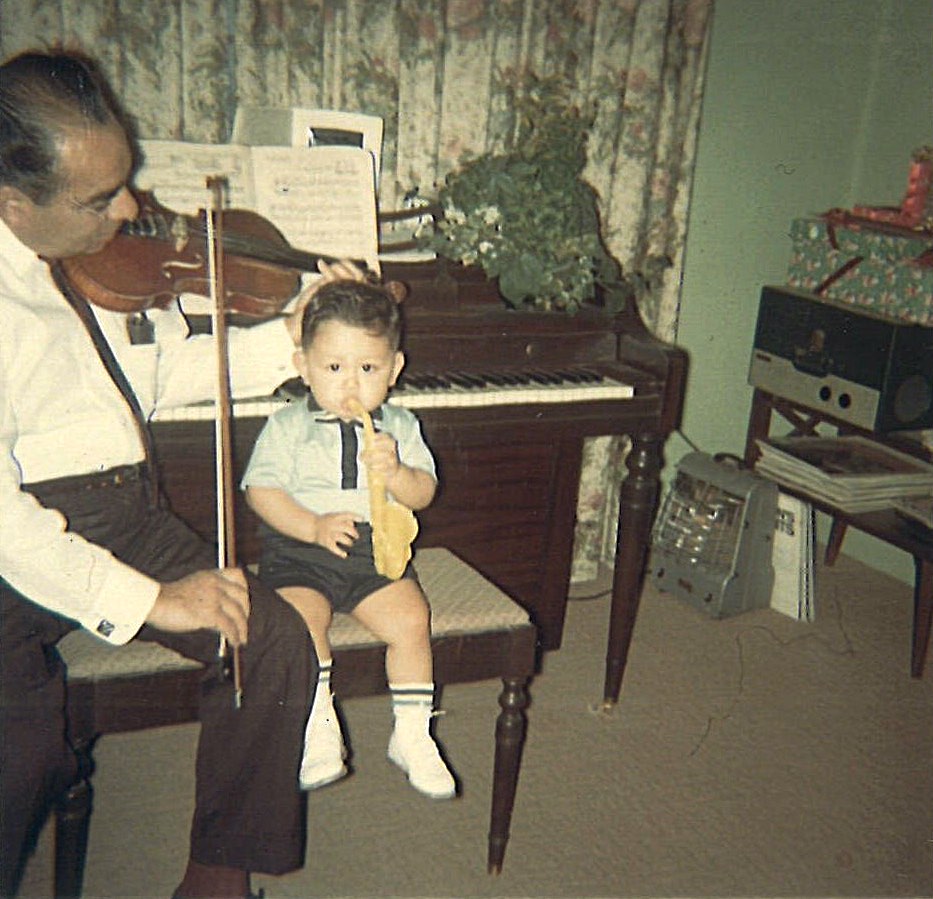My earliest clear memories of the art of music making are of my grandfather, Lamberto “Chapo” Cortez Zepeda, playing mostly Mexican traditional folksong repertoire on his violin either solo or in a trio configuration. Born in Arizona before it was a State – the joke was always that we didn’t cross the border, the border crossed us – he took violin lessons from the local barber in order to get out of saying the Rosary and, by his teens, he memorized all the songs that the local band played at dances, baptisms, and concerts. His mother, acting as his agent and surprisingly nonplussed that he had eschewed Catholic religiosity for music, approached the bandleader, himself a piano player for the silent movies, and demanded that Chapo be added to the orchestra without an audition. Chapo ended up auditioning for him anyway and, thoroughly impressed, he hired him on the spot. The orchestra worked so much that, coupled with his job working for a local Chinese grocer, he was expelled from high school. The point is that Chapo received his education in the arts on the street which, at the time, was the only way one could obtain it in most of America, let alone in a small, Mexican copper mining town.

Too often, stories like my grandfather’s are romanticized and put forth as the “true” musical education while formal education is downplayed. This is most often the case with jazz and popular music where the literati claim that the music suffered when the training left the bandstand and retreated into the academy causing critics to lament the institutionalization of the art. Having learned both on the streets of Los Angeles and in academic settings, I can say that such claims are exaggerated and not evidence-based. In fact, the two methods reinforce each other despite the inherent limitations of each though I believe the balance leans towards the former based on my personal experience and that of my colleagues throughout a long career amassing some 50 professional recording credits this decade alone including two commercially-released albums of my own. (My early violin education by observation of Chapo playing and my immersion in the listening-oriented Suzuki string program no doubt contribute towards this belief but it can be mostly attributed to my trial-by-fire introduction to the professional jazz world as a saxophonist at age 15 and forced, on-the-spot thinking in many a recording session!) These are among the problems I have set out to grapple with. What is the right educational balance to achieve maximum artistic and career success? Does the answer lie not only the study of music education but also in the analysis of the training in other creative arts both formal and informal, both performing and visual? Is there a common thread of how successful practitioners across all artistic fields do what they do and why they do it? Are case studies the most efficacious method of finding these answers and how will these answers from the arts contribute to the overall educational experience? What then are the implications of an arts-enlightened education for the broader society and to what extent can the devaluation of music be attributed to the lack of it?

Having studied music education formally at the graduate level over the last year and a half, I can see that relying on such a limited focus to provide these answers does not hold much promise. Rather, it was my business-oriented classes around the arts that exposed me to the “Edge Effect” that disciplines have on each other, both across artistic fields and between creative and commercial collaborators, to produce an optimized result. Could this Edge Effect that exists between artistic disciplines provide answers to the questions posed? Rather than in a specialized fine arts program, the best laboratory for such investigation is likely to exist in a program where practitioners from disparate artistic endeavors are brought together to learn from and teach each other. Outside perspectives thusly gained will more deeply inform one’s own practice of their native art form. As I have seen gig pay not increase appreciably since the early 1980s and album sales revenue rapidly become nonexistent, I am motivated to work in stalwart fashion through educational reform to reverse the continual reduction in the value of music.